Not perhaps as cute as Siena (no offence intended to the citizens of Parma!) but nevertheless an amazing concentration of magnificent churches, extraordinary works of art (such as a small Da Vinci painting) and lots and lots of fine food (and wine)!
(Parma's main square, Piazza Garibaldi)
The area goes back to 1,500 and 800 B.C. Parma was eventually founded by those rather mysterious Etruscans (the word “parma” was a Latin borrowing of the words “circular shield”). And then one day along came those good’ol Romans who founded the town as one of their colonies in 183 B.C. It was eventually sacked by Attila and his Huns (he had also ventured as close as Rome, only to be pushed back at the last moment by a rather “influential” pope, not to mention other towns that he had conquered in northern Italy, such as Udine, where I lived for 7 years).
We ended up staying in a great little B&B called “Rubra” (info at www.bbrubra.com, info@bbrubra.com). It was a hop, skip and a jump from the city center. A great little place with a cooking area and all the comforts you could need (since going to Greece years ago we no longer stay in “normal” hotels. We much prefer what the Greeks call a “studio”: small B&B’s with kitchenettes. It’s more convenient as you can cook what you want and also sleep in late without having to follow breaksfast timetables, as you do in pretty well every hotel in the world). The B&B is right next to a major bus route which take you back and forth to the town's main train station. It’s also conveniently located about 200 meters from a major supermarket.
Parma’s
got about 160,000 people, not too small and not too big. The important sites are in a radius of about
2 kms. If you don’t want to walk around
you can also rent bikes (the city’s flat like Modena, Ferrara, Reggio Emilia
and also Bologna).
Things to
see. So where on earth do I start? How about
Arturo Toscanini’s former abode which is about 300 meters from the B&B? Yes
indeed, one of the greatest music conductors of all time was born in Parma
(there’s film footage of a very young Herbert Von Karajan, another great
director, in the company of the late, great Toscanini).
Then there’s the main cathedral, a Romaneqsue church that also
houses a 16th-century fresco masterpiece by Antonio da Correggio. The church’s crypt is also interesting. And in the year of Pope Francis's special "Jubilee of Mercy" you can also pass through the cathedral's "Holy Door". Directly in front of the church lies the Baptistry
(1196-1270). Not to miss both of them as
they both contain mind-boggling works of art.
(The cathedral's special "Holy Door")
(And the rather amazing Baptistry which is right in front of the cathedral)
And Parma’s
national art gallery known as the “Palazzo della Pilotta” (1583)? Pretty incredible the masterpieces/painters
that are inside that museum, such as Da Vinci, Gian Lorenzo Bernini and also El
Greco. Right next to it is the Teatro Farnese.
Walk in and your jaw literally drops from its beauty. The building houses
the Academy of Fine Arts, the National Gallery, the Archaeological Museum and
the Bodoni Museum.
(Da Vinci's "Head Of A Young Lady", early 16th century)
(Details above and below of two busts by Gian Lorenzo Bernini)
(A statue by Canova)
("The Beach" by Renato Guttoso, 1955-56)
Not too
far away from the cathedral lies the San Giovanni Evangelista church, an abbey that
was originally constructed in the 10th century. It has
a late Mannerist façade and a belltower designed by Simone Moschino. The cupola is frescoed with an influential
masterpiece of the Renaissance by Correggio which heralded illustionistic
perspective ceilings. There's also an interesting cloister.
(One of the interesting churches near our B&B with a variety of nativity scenes)
(Some of the many interesting churches in the center of Parma)
(The central Regio Theater of Parma)
(The monument dedicated to Giuseppe Verdi)
Another amazing church which can be
found near the B&B is the Santa Maria del Quartiere (1604–1619). It’s a church with a hexagonal plan. Its cupola is decorated with frescoes by Pier
Antonio Bernabei. There are countless
other large and small churches around the city that are also worth paying a
quick visit.
There’s also the Ducal Palace,
again, a hop, skip and a jump from the B&B.
It was built in 1561 and is located in a very large park, a great place
for a nice jog.
The town’s main square is Piazza
Garibaldi. We rang New Year’s Eve in
Piazza Garibaldi. A special treat as the guest performer was Giorgio Moroder
who’s worked on many famous hits by musicians such as Donna Summer, David Bowie
(one of my favorite Bowie songs is this one:
www.youtube.com/watch?v=VpdHMaccjw4) and also Blondie. Moroder has won three Oscars and four Grammy
awards. Some of his movie soundtracks
have been for “Midnight Express”, “Flashdance” and “Top Gun”. About 1-2 kms away from that main square
lies the Citadel, another great park area of the city.
Restaurants and fine food? Well, you certainly WON’T starve in that
city, that’s for sure! It’s rather hard
to beat Parma as it’s home to perhaps the finest “prosciutto” in the world (its
two main contenders are in Spain and in the Udine area), not to mention its fine
“formaggio. No problem either with the
fine wines.
On January 1st as many
people were recovering from the wee hours of the New Year’s Eve celebrations we
took advantage instead of the rather "calm" atmosphere and hopped on a train to the nearby town of Reggio Emilia (it’s just 15 minutes away). Another small yet very quaint little Italian
town worth visiting (I think Italy’s very first national flag came about in
Reggio Emilia).
All-in-all, both Parma and Reggio
Emilia are unquestionably worth a visit!
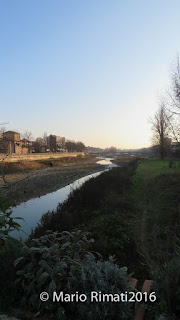





















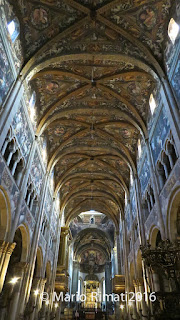











































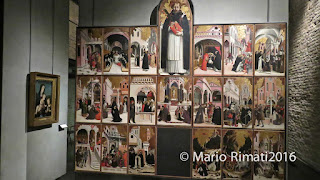






























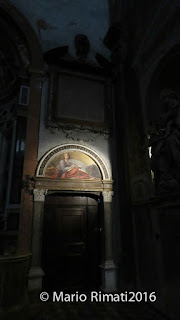
















































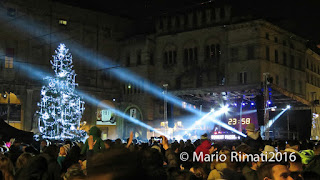


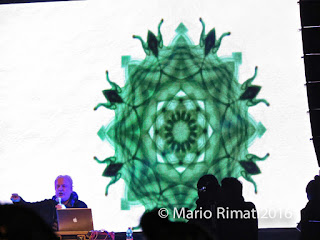



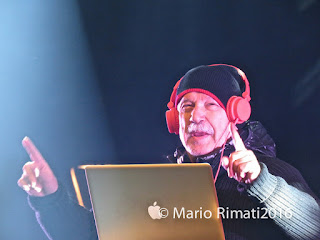

















































No comments:
Post a Comment